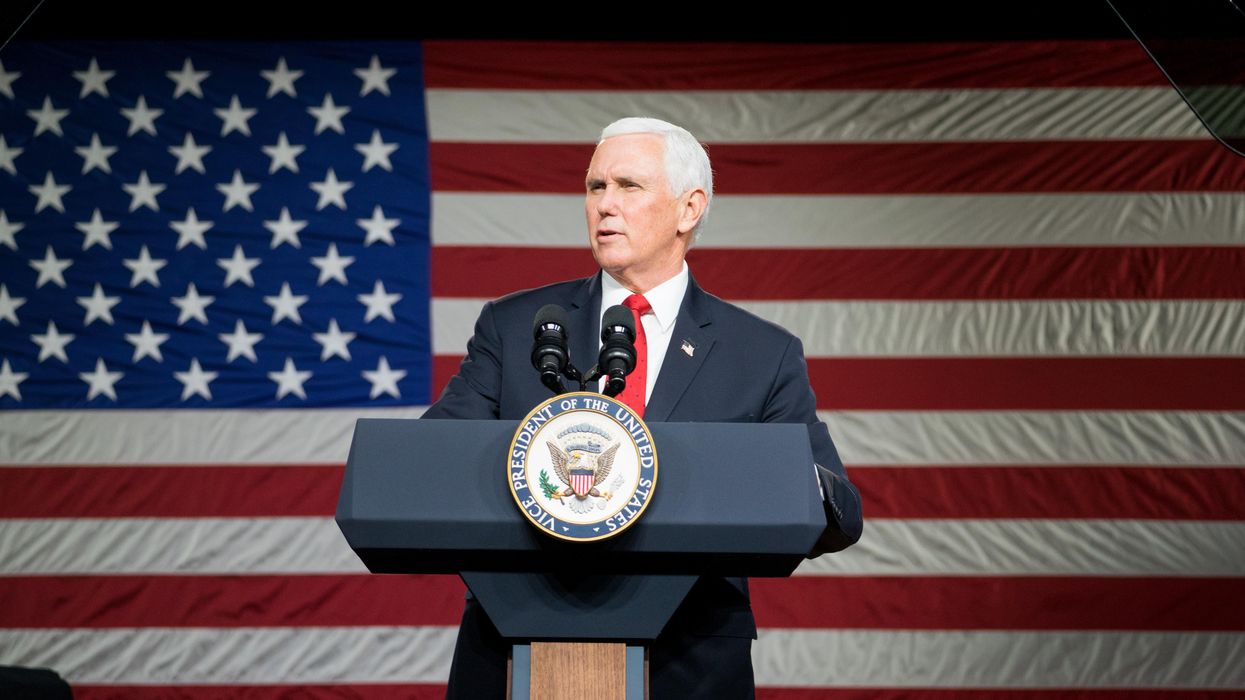That is, if you appreciate the second in command standing up for his oath to the Constitution instead of a man, and if you long for the days when America respected our European allies and was a proud member of the North Atlantic Treaty Organization (NATO).
You can certainly disagree with Pence’s ideology, but all Americans should be able to appreciate his willingness to draw a line.
On a recent trip to the U.S. military's Pituffik Space Base in Greenland, current Vice President JD Vance said, “We can’t just ignore the president’s desires” when speaking about President Trump’s fascination with acquiring Greenland.
Sorry, vice president. Yes, in some cases, we can ignore the “president’s desires,” and in other cases, we should, as in the case of Pence on Jan. 6, 2021.
Vance went on to say, “When the president says we have to have Greenland, what he’s saying is this island is not safe” from the likes of Russia and China.
He referenced President Trump with “The president said in his State of the Union address and he was very clear about this, is we respect the self-determination of the people of Greenland, but argument again to them is I think you’d be a lot better coming under the United States security umbrella than you have been under Denmark’s security umbrella. Because what Denmark’s security umbrella has meant is effectively, they’ve passed it all off to brave Americans and hope that we would pick up the tab.”
Americans can certainly discuss whether it is in our security interest to somehow have a greater presence in Greenland, but Vance’s word choice is the most concerning.
A Fox News survey conducted from March 14 to 17 showed that 70% of registered voters opposed Trump's goal of making Greenland the 51st state. Just 26% of respondents supported the Greenland plan.
The idea is even more unpopular with Greenlanders. A new survey conducted by Verian and commissioned by the Danish paper Berlingske showed that an overwhelming 85% of Greenlanders do not want their island to become a part of the United States. Only 6% are in favor of becoming part of the U.S., and 9% are undecided.
Vance’s disdain for our European allies has been on display for some time now. Just before Vance left for Greenland, we learned that Vance was a member of the Signal group chat, “Houthi PC small group,” which Jeffrey Goldberg, editor in chief of The Atlantic, was accidentally invited to join.
The group of national security officials in the Trump administration discussed the attack plans for Houthi rebels in Yemen.
On the text chain, Vance shared that the Houthis were interfering with Europe’s trade in the Suez Canal more than the U.S., writing “I just hate bailing out Europe again.”
Defense Secretary Pete Hegseth agreed by writing, "VP: I fully share your loathing of European freeloading. It's PATHETIC."
Perhaps Vance and Hegseth need a reminder that Denmark made the ultimate sacrifice 43 times on behalf of the United States and that after 9/11, NATO invoked Article 5 for the first and only time in its history, declaring that the attacks on the United States were an attack on all NATO allies, triggering the collective defense clause.
There were 3621 military deaths during the war in Afghanistan. 2461 were U.S. soldiers, leaving 1160 soldiers lost to our NATO allies. The U.S. lost 7.96 deaths per million. The country that came in second for the number of lives lost per capita was the aforementioned Denmark, with 7.82 deaths per million, having lost 43 Danish soldiers.
Pence, on the other hand, has a long history of supporting NATO. In a memo from 2024, Pence wrote: “While not perfect, NATO has been an irreplaceable part of American foreign policy since 1949. Abandoning NATO would embolden our enemies and betray our allies. Despite some of its present shortcomings, a strong NATO remains critical to America’s global leadership and interests abroad.”
During a time in our country’s history when the checks and balances on one of the coequal branches of government seem to be barely hanging on, we should all want a principled and honorable number two.
In his memoir “So Help Me God,” Pence wrote that in a New Year’s Day 2021 phone call, Trump told Pence: “You’re too honest,” he chided, predicting that “hundreds of thousands are gonna hate your guts” and “people are gonna think you’re stupid.”
Even after being scolded by the president of the United States a few days earlier and with his life at risk, Pence did the noble thing and certified the 2020 election for President. Joe Biden.
I miss having a second in command who prioritizes our founding principles and the rule of law over his boss's whims. I miss Vice President Mike Pence.
Lynn Schmidt is a columnist and Editorial Board member with the St. Louis Post-Dispatch. She holds a master's of science in political science as well as a bachelor's of science in nursing.




















Trump & Hegseth gave Mark Kelly a huge 2028 gift